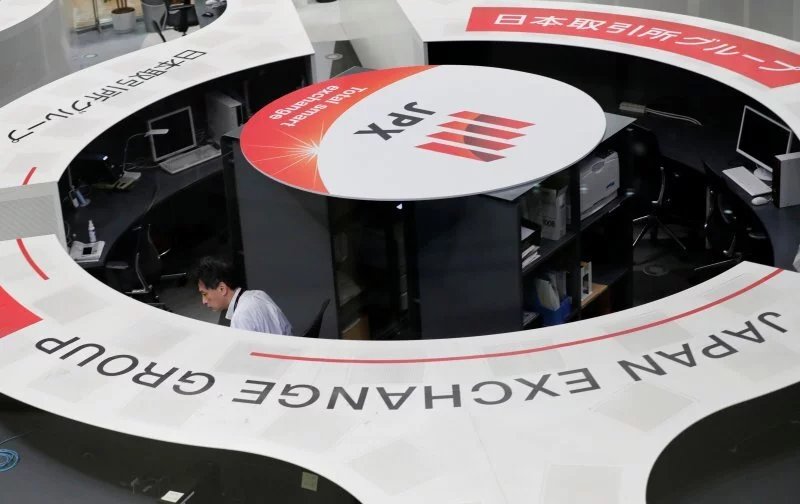Tokyo stocks fell sharply Tuesday, with the benchmark Nikkei 225 sliding more than 3 percent, as declines in technology shares and concerns over the U.S. economy weighed on sentiment.
Worries about Japan’s fiscal health also triggered a selloff in the yen and government bonds, News.Az reports, citing Kyodo.
The 225-issue Nikkei Stock Average closed down 1,620.93 points, or 3.22 percent, at 48,702.98, marking its largest single-day percentage drop since April 9, when it fell 3.93 percent. The broader Topix index lost 96.43 points, or 2.88 percent, to finish at 3,251.10.
The yen weakened to its lowest level against the U.S. dollar since early February, trading in the lower 155 range in Tokyo. Meanwhile, the benchmark 10-year Japanese government bond yield rose to a more than 17-year high.
At 5 p.m., the dollar fetched 154.99-155.01 yen compared with 155.22-32 yen in New York and 154.67-69 yen in Tokyo at 5 p.m. Monday.
The euro was quoted at $1.1590-1592 and 179.64-68 yen against $1.1587-1597 and 179.86-96 yen in New York and $1.1613-1614 and 179.63-67 yen in Tokyo late Monday afternoon.
In the stock market, heavyweight chip-related stocks took a battering following a drop in their U.S. counterparts overnight ahead of earnings by U.S. chip giant Nvidia Corp. on Wednesday, brokers said.
Exporters also finished mostly lower, even as the yen depreciated against the dollar and the euro, amid fears of a slowing U.S. economy. A weaker yen boosts profits earned overseas when repatriated and makes Japan-made products more price competitive abroad.
The near-term outlook is expected to hinge on U.S. economic indicators, with investors awaiting jobs data — delayed by the U.S. government shutdown — later this week for clues on the health of the world’s largest economy.
“Concern is…growing that the U.S. economy will deteriorate if the (Federal Reserve) does not cut interest rates in December,” as suggested by recent statements from several Fed presidents, said Masahiro Ichikawa, chief market strategist at Sumitomo Mitsui DS Asset Management Co.
Concerns grew stronger that Prime Minister Sanae Takaichi’s plan to support Japan’s inflation-plagued economy with aggressive fiscal spending could hamper efforts to restore the country’s fiscal health.
Investors are concerned that the prime minister may ramp up government bond issuance to fund upcoming stimulus measures, which Finance Minister Satsuki Kayatama said Sunday are expected to reach “well above” 17 trillion yen ($110 billion) in size.
Japan’s benchmark 10-year government bond yield briefly hit 1.755 percent, its highest level since June 2008, on worries that the action may lead to fiscal deterioration. It ended at 1.745 percent, up 0.015 percentage point from Monday’s close.
In New York overnight, the Japanese currency weakened beyond the 180 line against the euro for the first time since the single European currency was introduced in 1999, before moderately rallying back.
News.Az


AloJapan.com